Almadar: New Strategy for Restructuring of the Second Largest Player in Libyan Telecom Space
Abdulla A. Abouda, General Manager of Almadar Aljadid
Almadar is the second mobile operator in Libya and it provides voice services and certain internet services using GPRS and EDGE technology. The operator is preparing for a launch of 3.7G (4G ready) and further network modernisation. The penetration rates are high but the mobile sector is not saturated yet and there is large potential for data. Almadar has already recovered most of the 100 sites affected by the Libyan revolution, yet the past regime remains a challenge – in the form of corporate culture.
Interview with Abdulla A. Abouda, General Manager of Almadar Aljadid
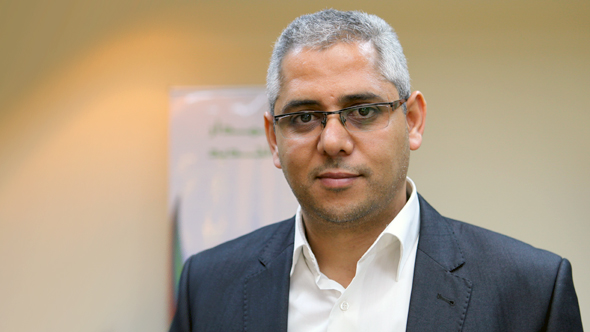
Can you give us a general assessment of the telecom industry here in Libya, a brief explanation about the telecom industry; is it private or public?
As you may know that there is a holding company, and under this company there are 8 subsidiary companies. Almadar is one of these companies and its main business is in mobile operation. All these companies are government-owned. So far there is no privatisation in Libya in telecommunication sector. After the revolution the Ministry of Communications has started to encourage the private sector so licenses for internet service providers were granted, however, this is still quite limited. The total number is about 15 licenses for internet service providers. So we can say that there is very little privatisation in telecommunication sector in Libya, in other words the telecom sector almost belongs to the government.
You have been teaching at the Misrata University, you are Libyan and you have lived through the Gaddafi years, what can you tell us about the recent history of the Libyan telecom industry?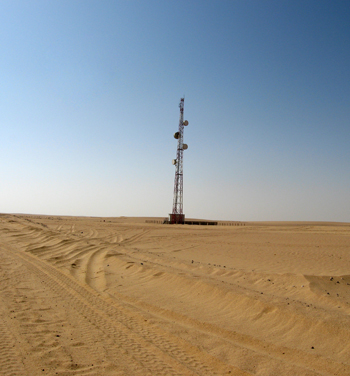
Previously the communications sector was dominated by Gaddafi’s son Mohammed; he was running all the companies, and these companies were putting money in his pockets and nowhere else. So I don’t think the situation of the telecom sector was good. Nowadays we are not too much change has been done, at ministry level restructuring for the whole sector is under development and establishing new regulator under progress. I think if this has been completed then we will be able to have some sort of competition between the working companies. I think this process will take time and I don’t expect big change in the near future.
So not a lot of capital investment had occurred?
There were a lot of investments in the sector, but they were not directed or managed in the correct way. For example, Libya had large investment in the optical fibre project, this project was supposed to cover the whole country and provide national backbone for the whole country. Large part of the problems we are facing now as mobile operator is due to the lack of the backbone. I believe the government spent more than US $500 million on this project but it wasn’t managed in the right way.
What were the inefficiencies?
There were lots on inefficiencies, primarily corruption, no proper planning.
I read statistics that said that during the revolution the damages done to the infrastructure were in excess of US $1 billion and that about 20% of the country’s cell sites have been destroyed. Can you tell us about the effect of the revolution on the telecom sector in Libya?
Many sites were damaged by war, especially in the areas of Brega, Misrata and Zintan. Other sites were affected from the destruction of solar panels, optical fibres and electrical equipment. I don’t have the exact figure for Almadar but I think over 100 sites were affected.
After the revolution the Ministry of Communications has started to encourage the private sector so licenses for internet service providers were granted, however, this is still quite limited. The total number is about 15 licenses for internet service providers. So we can say that there is very little privatisation in telecommunication sector in Libya, in other words the telecom sector almost belongs to the government.
What is the situation at the moment?
I think most of the sites have been recovered. The road sites were the last to be recovered because of instability and security issues in some regions, but most sites were recovered.
You have only been in this position for three months; therefore we cannot see the effect of your management or innovation, but what would you like to achieve or what would you say is your strategy?
It is really difficult to say what I am going to do exactly. To be frank these last three months I have been trying to understand the situation and to see where it is going. As for myself, I am pushing for one main project that is the 3G project. Almadar is going to implement a 3rd Generation mobile system and do some network modernisation. I am pushing to get it started by the end of this year. Maybe you have experienced the internet service in Libya, it is generally bad. This project is going to help in this sense. This is the main project I am focused on.
3G is already an old technology in Europe and the United States, everybody is moving to 4G, wouldn’t it be wiser to go straight to 4G?
Actually Almadar is going to go for 3.7G which is a 4G ready technology (LTE). We are going to have 3.7G and in some areas we are going to have hotspots for 4G technology. So we will be ready for the 4G.
Can you tell us more about this project, if you go ahead how much investment will be required, who will be the suppliers that you will work with etc.?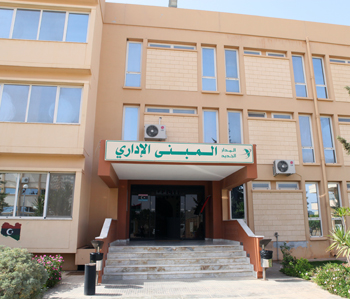
We are not yet sure which companies we are going to use, we will go through a vendor selection process. We have hired a company to support Almadar to carry out the vendor selection. We expect to spend about US $150 million of investment into this.
What are you main challenges operating this company, for example over-employment, mal-investment, corporate culture or financing issues?
I think corporate culture is the most difficult challenge to manage. It is not over-employment because we have less than 1,000 employees at Almadar which in comparison to other countries is not many. The main problem we face is corporate culture. It is hard to change people’s mentality to adapt to the new situation. We have lived through the Gaddafi days which were really tough days. Now people feel they are free and can do whatever they want: they don’t follow rules and regulations, which makes it hard to work in this environment.
You mean inside the company or when you deal with the public?
Partly within the company but also when you cooperate with other units, other companies, government bodies etc.
Looking at the penetration rates and your subscriber base, you provide mobile internet and the telecom services…
We are just a mobile operator; we don’t have a license to provide fixed internet. We just provide voice services and very limited internet services using GPRS and EDGE technology. Based on our estimations we have about 45% penetration in Libya.
What would you say is the mobile penetration rate in Libya, over the entire sector, how many sim cards are there etc.?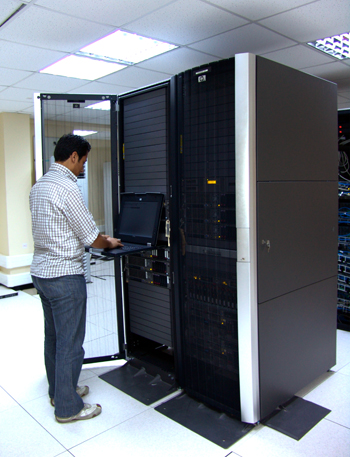
I don’t have the exact number, but I would say definitely more than 100%.
With the advent of the internet, many telecom companies are now waking up to the internet revolution. There are many internet companies like Skype and VoIP that are becoming the major competition to the industry, do you see the same happening in Libya in a few years and how will you react?
I think so, we will see this in Libya also. I don’t have a clear answer to this question but I think we will find a way to cooperate with these companies, not just to fight them but to benefit from them. We have some ideas regarding this but they are not implemented yet, because as I told you we don’t have a good internet service yet. When we have the 3G internet service up and running then we will have good quality internet and we will start to see this issue arise.
Do you see the growth in data or in mobile?
I can say both mobile and data using 3G and LTE technology.
Is the company growing or is it stable at the moment?
Yes, it is growing both in subscriptions and also financially.
The main problem we face is corporate culture. It is hard to change people’s mentality to adapt to the new situation. We have lived through the Gaddafi days which were really tough days. Now people feel they are free and can do whatever they want: they don’t follow rules and regulations, which makes it hard to work in this environment.
It is a basic economic question; if the telecom industry is growing it reflects on how the economy is doing, many observers are looking at Libya and see a failed economy and a failed state, which is not true.
Yes, it is definitely growing I can ensure you. We don’t face the same situation as in other countries; for example when you have saturation you have to invent something new to get people to subscribe to this new offer. Here in Libya we are still growing so this is not yet the case, we haven’t reached saturation yet. There is large potential for data.
You have been regionally a state owned company, many countries I have been to personally, like Lebanon, haven’t privatised their telecom operators and the government is using the companies as a direct tax on the people, the prices are very high and the revenue goes directly to the government and is used for government employees. Are we looking at a similar structure here? What level of independence do you have from the government?
I can’t say exactly, I would have to evaluate it but I think we have a good margin of freedom to operate. We have heard and we believe that there will be a new license for a third operator, to create competition between companies, so we have a good degree of freedom in this sense.
Will this third operator be a foreign company?
I believe so, it is not finalised yet, but it is being studied.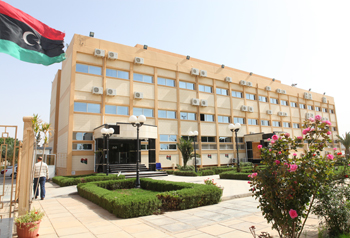
I have statistics from one analyst that said that Libyana may be valued at US $2 billion and Almadar at around half of that – US $1 billion. What is the current valuation of Almadar if it were to be sold today?
I think that about two years ago there was an evaluation carried out and we were valued at US $2 billion. I am not sure about the current value. The company has grown so I believe it is worth more than US $2 billion now. I don’t know where you got that information?
It is an article by Reuters dated 4th April 2012. They are quoting an analyst; they don’t even say his name.
As far as I know there was a study done by DETECON more than two years ago and they valued Almadar at US $2 billion.
Libyana is larger than Almadar?
Yes, it is larger, they have more sites and subscribers.
Have we talked about the latest technologies that you are going to implement?
We have mentioned the 3G project. There are also some supporting projects for example we have a DWDM project which is an upgrade project for Almadar transmission network and it is under development now.
Libya is of course dependent on oil, I think the telecom sector as a service sector is one of the most important sectors in most of the developed economies. In the future do you see the role of the telecom sector increasing as a share of the overall GDP?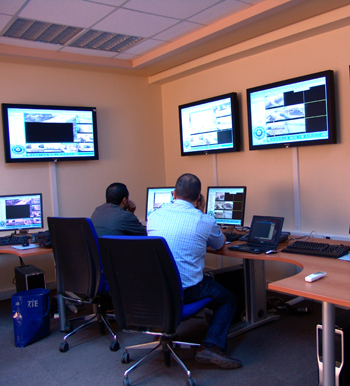
Yes, I think it has great potential as a valuable resource for the Libyan economy.
You also have a responsibility to society, what sort of initiatives are you doing in terms of corporate social responsibility.
We have many initiatives in this sense. For example, we are building more than 250 classrooms; this is one project in which we contribute to society. There are many others where we participate all over Libya. This school project is the main one; we have put about 5 million Libyan dinars into this project. After the war many schools were damaged so we have contributed by rebuilding some classrooms in these schools.
Is there anything you would like to add in terms of the internet security situation? The Ministry is planning e-security…
I think you are confused with another project the government is trying to provide. However, if you are talking about ensuring the security of Almadar and other companies networks, yes we do have a project regarding security in Almadar.
Where do you see investment opportunities in this sector either with you or in general? I mean opportunities for international companies, telecom providers, technology providers, where do you see good investment opportunities in Libya, either with Almadar or in the sector in general?
Let us talk about Almadar. I think there is lots of potential for business in Almadar with the 3G project as this will be a long term project and not just for a matter of months. There are good opportunities for big vendors to contribute to this project. I do not know a lot about opportunities in other companies, but I believe there are chances there also.
Is there anything else you would like to add? Do you have a message about Libya, in terms of security; is it scary at all?
I think the security situation is not as bad anymore, I think it is improving day by day. I believe it will be good in the future.